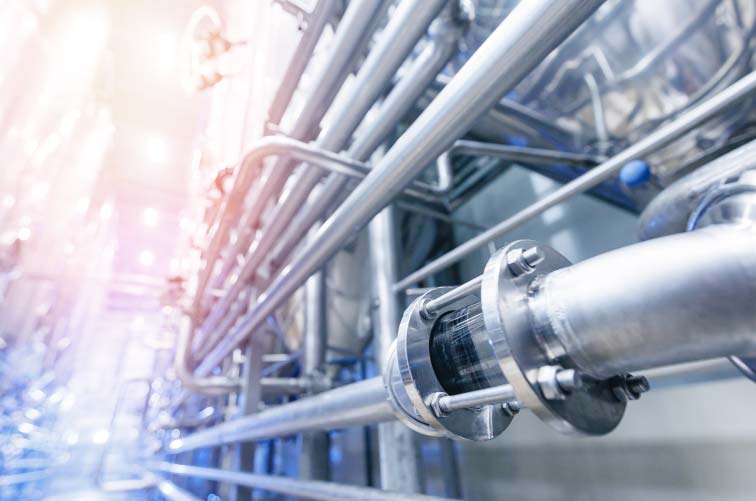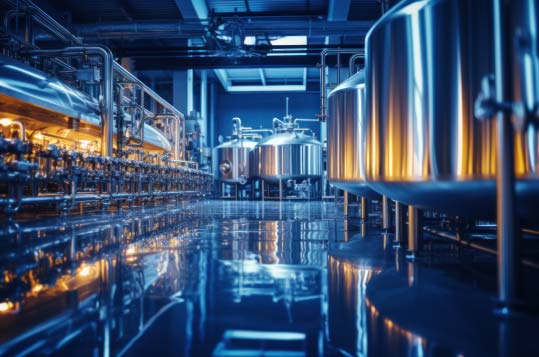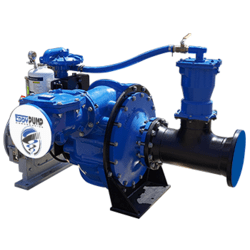Application of EDDY Pump in Beer Production



Application of Our Slurry Pumps in Beer Production

- Grain Transfer and Mashing: A slurry transport pump efficiently transfers grain mashes from the mashing vessel to other stages of the brewing process. These pumps can handle the thick, viscous mixture of water and crushed malt, ensuring smooth and consistent transfer without clogging or excessive foaming.
- Wort Circulation: Wort circulation is crucial for efficiently extracting sugars from the grains during the mashing and lautering. The heavy-duty slurry pump recirculates the wort, ensuring even distribution and optimal extraction.
- Spent Grain Removal: Once the mashing process is complete, slurry pumps transfer spent grains from the mash tun. The slurry transport pump helps efficiently remove the heavy, solid-rich mixture for further processing or disposal.
- Trub and Sediment Handling: A slurry transport pump is essential for transferring trub, which consists of hop particles, proteins, and other solids that settle at the bottom of the brew kettle. These pumps ensure the efficient separation and removal of trub from the wort before fermentation.
- Yeast Management: The heavy-duty slurry pump can be used in yeast propagation and management. They help transfer yeast slurries between fermentation vessels, ensuring consistent yeast distribution and promoting healthy fermentation.
- Waste Management: An abrasive handling pump transfers waste materials, such as spent grains and trub, to storage or disposal areas. Efficient waste handling contributes to maintaining a clean and organized brewery environment.
- Cleaning and Sanitation: Slurry pumps can be used for CIP (clean-in-place) processes, where they help circulate cleaning solutions throughout the brewing equipment. This aids in effective cleaning and sanitation, ensuring the elimination of residues and contaminants.
- Custom Applications: Breweries often have unique processes and equipment setups. The industrial slurry pump can be customized to accommodate specific needs, making it adaptable to various stages of the brewing process.
CALL FOR SALES OR SUPPORT
If you need help with Pump Selection, Sales or Engineering Support
Call 619-345-5446

Application of EDDY Pump’s Hydraulic Dredging in Beer Production

- Waste Management and Water Treatment: Breweries generate various types of waste, including spent grains, trub, and other byproducts. While not the same as hydraulic dredging, some fluid dynamics and sediment separation principles could be applied to develop efficient waste management and water treatment systems within the brewery. This could involve designing systems that use water flow and pressure to separate solids from liquids, thereby aiding in properly disposing or reusing waste materials.
- Grain Handling: Breweries deal with large quantities of grains used in the brewing process. Efficient handling of grains during milling, mashing, and transferring can benefit from principles related to hydraulic dredging. Developing equipment or systems utilizing controlled water flow to move and transport grains without causing excessive abrasion or damage could enhance brewing.
- Efficient Liquid Transfer: While not true hydraulic dredging, breweries could draw inspiration from the principles of hydraulic transport to optimize the movement of liquids containing solids at various stages of beer production. This could include designing pumps or systems that prevent clogging and maintain consistent flow rates even when handling mixtures with varying particle sizes.
- Cleaning and Maintenance: Like hydraulic dredging’s focus on clearing and maintaining waterways, breweries could implement principles of fluid dynamics to design effective cleaning and maintenance systems. This might involve using water flow and pressure to clean equipment, remove residues, and maintain a hygienic brewing environment.




